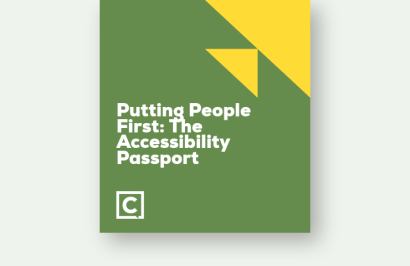A recent study by Lime Group revealed that “only 16% of people feel very well supported by their employer when it comes to their mental health”, whilst Mind announced that 60% of adults felt their mental health has worsened since the pandemic.
Like most complex issues within society, discussions and actions surrounding mental health and wellbeing in the workplace are often two dimensional. How do we change this narrative?
We spoke with Suki Bassi, founder of diversity, inclusion, and employee wellbeing specialists HappyMaven, which launched in Happiness at Work Week four years ago. She believes that positive corporate culture and the wellbeing and happiness of employees is at the heart of every great business. We wanted to ask her all about wellbeing in the workplace and how that’s changed over the last 18 months...
Do you think the importance of wellbeing has moved up the agenda since the pandemic?
Without a doubt, people are certainly talking about it more. There was a period for the first three months of the pandemic when suddenly mental wellbeing was on everyone’s agenda. But mental health and wellbeing is a huge umbrella term. What do we actually mean?
Frontline workers, shop staff, delivery drivers have had a very different 18 months to many of us who were office-based. If I was a nurse on an ICU ward, my needs would be very different to somebody that has been furloughed.
One doesn’t trump the other, but we are all different.
Take the example of diversity, equity, and inclusion - until we actually unpack what that means to us we can't make any meaningful change.
We need to start with, "What is an employee wellbeing approach in a workplace? And what does it take to make a sustainable change?" It's meaningless until we've actually quantified it.
What is the first thing a company should look at when aiming to improve the happiness and well-being of the team?
Whether it's happening at board level, within the HR team, or within employee groups, the key question here is what prompted the discussion?
There's a big difference if it’s being motivated by crisis - if people are going off sick or productivity is low, or there's presenteeism. That's a very different problem to solve than if you're trying to be proactive because you work in an environment where you listen to each other and you’ve spotted things that may turn into wider issues if not addressed.
We often get a flurry of inquiries around Mental Health Awareness Days. It’s great if it prompts a company to look at things more seriously, but it can’t just be a box-ticking exercise.
Who should have this ownership of it? Who should be driving this forward within an organisation?
It has got to be owned right at the top. So depending upon your organisational structure, that is usually with the board, the CEO, or with the CEO's direct reports.
We regularly get enquiries coming from very junior HR people, or perhaps from an employee network with zero budget. We love working with all of those people, but we don’t want to set them up to fail. They need to have the buy-in and the traction the topic deserves, otherwise they’ll just be wasting their time. It’s a huge emotional burden to give them, carrying this on top of their day job - it’s a lot to have the weight of the workforce’s wellbeing on your shoulders when you’re just a junior with no real power.
It’s one of the most important things we’ve learnt in the last four years and it’s one of the reasons we’ve recently repositioned our offering. We no longer work with anyone that's under a certain level and they must have executive sponsorship.
What difference does it make when wellbeing is prioritised by the board?
When that call comes from the HR director or the CEO, it's a game-changer. With one of the clients that we've worked with over the last 12 months, we were brought in by the CEO and the HRD. It was a real partnership approach with both of them. The CEO was at every single session, there wasn’t one where he was too busy to attend. So that executive sponsorship wasn't just a name on a PowerPoint deck. You can't measure that value.
A few months into the pandemic we were talking on a webinar about how you can create some balance in your lives, and he shared his own experiences about how he sets aside time to prioritise his mental wellbeing, that has such power and encourages other people to say "Well, I'm going to build that time in."
Is there a template or good examples out there for businesses to try and follow?
It’s dangerous to try and follow what another business is doing. Most of our businesses don't look like theirs, don't function like theirs, so let's not cherry-pick examples. And also a lot of the big guys will spend as much on marketing their approaches as they will delivering them.
Trust that you know your own business and your own people and respond in kind. The moment we take a look at the FT or CIPD and say, "Well, that's the approach I need to apply as a template to my business," you've already tripped yourself up.
How has covid impacted wellbeing initiatives and what will it look like going forward?
Beyond economic or operational factors, the pandemic didn't create anything new within organisations. It just exposed what already existed. Good, bad, or ugly. If there were already fractures, it widened them. If there was already trust, autonomy, or good communication protocols, you piggybacked off them, used them as a springboard. You leverage what was already there.
I think that we are at the crux of the next big working revolution. We need to feel able to try things, to pilot new ideas that might work for our individual businesses and measure the results and then if it doesn’t work out, take another direction.
We’ve got to be careful about doing things just because others are or because it’s been the way we’ve worked for 18 months. We shouldn’t, for example, sleepwalk into a working from home revolution. For many years I’ve extolled the virtues of flexible and remote working. But we need to interrogate the positives and the negatives and there needs to be a choice.
I will always come at it through the lens of diversity, equality, and inclusion. Women are shouldering the biggest burden of domestic responsibilities, childcare, and caring responsibilities. Are they going to miss out on opportunities of serendipitous conversations, mentoring, collaborations, the pre and post-meeting chats that happen within physical workplaces?
Are young people trapped in their childhood bedrooms or in flatshares when they should be developing networks and friendships? What does it mean for social mobility?
So let's get more data on this. Let's actually unpack what this could potentially mean. For it to be sustainable, you've got to be piloting and measuring it. Decisions can be made overnight, but change isn't going to happen overnight. But it can happen, and that’s the exciting part!



